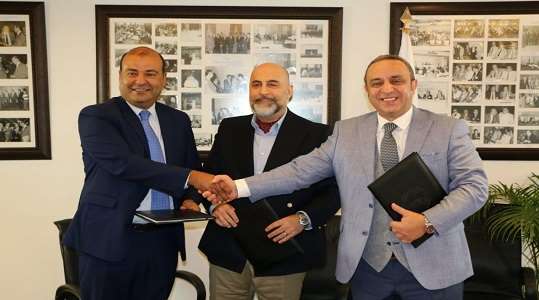The Union of Arab Chambers, represented by its Secretary General Dr. Khaled Hanafy, signed a Memorandum of Understanding with the Union of Arab Banks and the Global Coalition for Efficient Logistics (GCEL), aimed at strengthening joint cooperation between the three parties, in the interest of the Arab economy and in line with the requirements of the new global digital economy.
The MoU aims to ensure sustainable economic growth by laying the groundwork for a successful digital economy implementation phase. Under this memorandum, the digital economic platform that enhances the power of what technology provides today will be launched in order to reduce excess trade costs by $4.8 trillion, increase merchandise trade by $6.3 trillion, and create more than 400 million jobs by 2030.
Commenting on the benefits that the Arab private sector will benefit from, Dr. Khaled Hanafy, the Secretary General of the Union of Arab Chambers, indicated that “the tools of the digital economic platform will better integrate Arab commercial companies into the corporate transaction market (B2B) using dynamic, high-quality and authenticated data.”
He added, "Our members will benefit from more transparency, allowing them to lessen risks and reduce the burden of regulatory compliance. Knowing that the ten guidelines for digital economy were previously adopted by the UAC, the UAB, the International Network of Small and Medium Enterprises, and the Global Coalition for Efficient Logistics"
Hanafy pointed to "the importance of this step which will ultimately lead to the creation of a digital online index of goods and services at the Arab and global levels, improving the matching of buyers with sellers, increasing the conversion rate from the moment the product or service is seen until its possession, securing digital finance, providing digital insurance, and presenting logistical tools and digital processes for commercial transactions."
“The digital economy should include a global pointing mechanism that allows all users to objectively assess performance risks when making business-related decisions,” he said.
He also stressed that "the real digital economy contributes smoothly to support the sectors of trade, finance, insurance, logistics and integrated operations, which represent the main pillars of the corporate transaction market, which is the mother of all sectors."
Source (Union of Arab Chambers)

